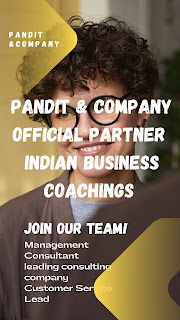Beyond “Agree to Disagree”: Why Leaders Need to Foster a Culture of Productive Disagreement and Debate
Senior leaders must hear the full, unvarnished truth from employees. Use simple rules of thumb and checklists to gauge and ensure your organization’s openness to productive dissent.
“You don’t bring bad news” explained a former WeWork employee.1 As outsiders shared skepticism about WeWork’s business model and a series of red flags sprang up in the months prior to the organization’s implosion in 2019, disbelieving senior employees remained silent. They did not want to be the bearers of bad news to their CEO at the time. Although the organization has since moved on under new leadership, the WeWork story is emblematic of a broader trend: In this era of polarization and rancorous discourse in all realms of society, it is increasingly difficult to have open and productive disagreements at work.
A survey of 6,000 tech employees found that 17.5% of them do not speak up at all to their managers. Situations like this are particularly unfortunate because team and corporate performance are contingent upon a culture in which employees feel free to communicate their ideas and opinions as they work together and solve problems. While many organizations may not view their culture as one that actively suppresses disagreement, few foster a culture in which open and productive debate is a cornerstone. As a result, it becomes ever harder for senior leaders to get the full, unvarnished truth from employees, and they can end up making big decisions based on half-truths or incomplete data.
Why Encourage Debate?
Failure avoidance is only one reason why leaders should prioritize open disagreement. Healthy debate also amplifies innovation. In 1921, when William Knudsen, one of Ford Motor’s top engineers and a leading expert in flexible mass production, offered Henry Ford his sketches for producing customized Model Ts, the company’s autocratic founder simply walked away. Ford paid a costly price for not engaging in a debate with a subordinate; soon after, Knudsen joined General Motors and implemented his ideas as the head of Chevrolet, narrowing the Model T-to-Chevy sales ratio from 13:1 to 2:1 in just five years.2
Repressing alternative opinions also hurts employee engagement and retention. Just as Knudsen promptly left Ford, employees who do not feel comfortable speaking up at work are less likely to want to stay with their company. By repelling employees who think differently, organizations can inadvertently create a consensus-driven culture and fall prey to group think.
Organizations that inhibit debate are also vulnerable to “decision spin”—a costly phenomenon wherein decisions bounce around the company, from group to group and up and down the hierarchy, frequently accompanied by requests for more analysis or options. Decision spin reduces productivity and the quality of output. Executives leave meetings in apparent agreement to a proposed plan of action, but nothing is done. Oftentimes it is not unexpected factors that hamper success but known factors that were either not surfaced or not taken seriously.
The business imperative of nurturing a culture of productive disagreement is clear. The good news is that senior leaders can play a highly influential role in this regard. By integrating the concepts of openness and healthy debate into their own and their organization’s language they can institutionalize new norms. Their actions can help to further reset the rules of engagement by serving as a model for employees to follow.
We propose a series of tactical strategies and offer a three-part Disagreement Temperature Checklist that senior leaders can employ to encourage employees to speak truth to power and to each other. To help promote a culture based in truth, evaluate the prevalence of debate in your organization’s culture and team dynamics. Ask yourself the questions in the following checklists on a weekly or monthly basis to assess whether you and your team embody and actively instill the values of debate in your organization.
Institutionalize: Make Debate a Core Tenet of Your Organization
In 2018, a BCG study of 100,000 corporate filings revealed that companies that described themselves using humanistic language including words that support debate and diverse opinions, such as truth, true, fact, and transparency, enjoyed a 0.7% premium in annual growth and a 0.6% premium in annual shareholder returns over a three-year period, as well as enhanced employee engagement and management diversity. Yet few companies have explicitly stated organizational values around upholding and seeking truth, respecting facts, and encouraging debate.
Leaders should incorporate the concept of productive debate into corporate value statements and the way they address colleagues, employees, and shareholders. Michelin, for example, built debate into its value statement. One of its organizational values is “respect for facts,” which it describes as follows: “We utilize facts to learn, honestly challenge our beliefs….” Another company that espouses debate as value is Bridgewater. Founder Ray Dalio ingrained principles and subprinciples such as “be radically open-minded” and “appreciate the art of thoughtful disagreement” in the investment management company’s culture. The company’s website states, “Bridgewater’s competitive edge is our pioneering workplace culture that relies on truthful and transparent communication to ensure the best ideas win out.”
Leaders should also highlight—and repeat often—values such as “truth seeking” and “debate” as priorities when undertaking major initiatives and as part and parcel of the desired end state in transformation efforts. Before the invasion of Normandy, Dwight D. Eisenhower told his senior commanders, “I consider it the duty of anyone who sees a flaw in this plan not to hesitate to say so. I have no sympathy with anyone, whatever his station, who will not brook criticism. We are here to get the best possible results.”3
DISAGREEMENT TEMPERATURE CHECKLIST PART I – INSTITUTIONALIZE
- Do your corporate statements (mission, vision, and values) reflect the importance of debate, diverse opinions, and seeking truth?
- Is a broad set of voices engaged in developing the company’s most recent initiatives?
- Have you incorporated the language of productive disagreement into the way you speak about the company’s growth strategy, both publicly and internally?
- Is productive disagreement embedded within individual performance reviews? Is it directly and indirectly rewarded?
Characterize: Talk the Talk, Walk the Walk
Value statements won’t mean much unless they are reflected in everyday actions. Employees take cues from senior leaders. This starts with leaders exemplifying values in their behavior. Leaders, for example, should openly admit to mistakes and be willing to publicly change their minds when presented with better evidence. Leaders should also seek to create an environment of psychological safety. Acknowledging and recognizing who or what led to their own changes of perspective signals that employees are not only safe to share but also incentivized to share alternative opinions.
Harrah's grew to become the largest casino operator in the world thanks in large part to former CEO Gary Loveman’s commitment to evidence-based decision making. Loveman, a PhD in economics, modeled the behavior he sought to promote in his company. He admitted his mistakes openly when presented with facts and analysis and emphasized that his “insights were not privileged over anyone else's [regardless] of title, rank, or anything else.”4
DISAGREEMENT TEMPERATURE CHECKLIST PART II – CHARACTERIZE
- Did you recently ask anyone for an alternative perspective or a reason why your perspective might not be right?
- Did someone disagree with you?
- Did you share a contrarian point of view?
- Did you and your team consider a different conclusion before the end of recent meetings?
- Did you see anyone change their mind?
- Have any strategies been challenged or rethought?
Standardize: Make It the Norm, Not the Exception
Finally, leaders should formally incorporate the values of productive disagreement into the organizational fabric and ways of working. This can be done in a variety of ways, such as establishing debate-friendly rules of engagement for meetings and employing digital tools (for example Mentimeter, Slido, and EasyRetro) that provide real-time feedback, help surface silent majorities, stimulate out-of-the-box thinking, and encourage more inclusive conversations and productive disagreements.
Another way to ensure that dissenting opinions are heard is to build them into the organizational structure. In the early 1500s, Pope Leo X established the office of promotor fidei (promoter of the faith) headed by advocatus diaboli (the devil’s advocate) to provide arguments against granting nominees sainthood. The U.S. Army uses “red teams” that are specifically tasked with challenging high-stakes decisions and plans, such as the plan to capture Saddam Hussein.
The same effect can be achieved by building debate into processes. At Pixar, directors present their projects at specific development points to a formal team called “the Braintrust,” which is composed of respected peers. Embedded in the team’s name is one of the core tenants of its operation: the team and the director trust that their shared mission to improve the film will create a space in which unbridled feedback is openly received. As a counterbalance to blunt critiques, the Braintrust has no formal authority, so the director can receive feedback without being obligated to act on it.
DISAGREEMENT TEMPERATURE CHECKLIST PART III – STANDARDIZE
- Do your teams have formal activities and processes in place to pressure-test current operating hypotheses and regularly solicit contrary opinions?
- Do you get the truth from employees without resorting to anonymous surveys?
- Did everyone share an opinion in recent meetings?
- Did you and your team openly acknowledge any mistakes? If not, did you brainstorm how to avoid this in the future or develop an appropriate mitigation plan?
How did your answers to the questions in the three parts of the Disagreement Temperature Checklist add up? If your weekly or monthly review does not consistently result in a string of positive responses, it is likely that your organization's culture is less open to debate and productive dissent than it should be. In that case, consider what caused you to respond “no” to a given question. Evaluate what is required to turn each answer into a “yes.” Is it an action you can take alone, or does it require engaging your team? Or do you need to undertake a broader shift within the organization? It isn’t always easy to instill a culture of productive disagreement and debate in your organization—you may not always like what you hear, but you're unlikely to regret it.














Comments
Post a Comment